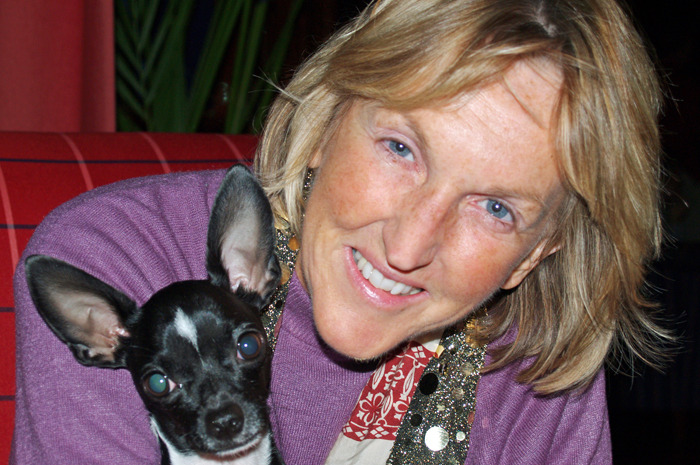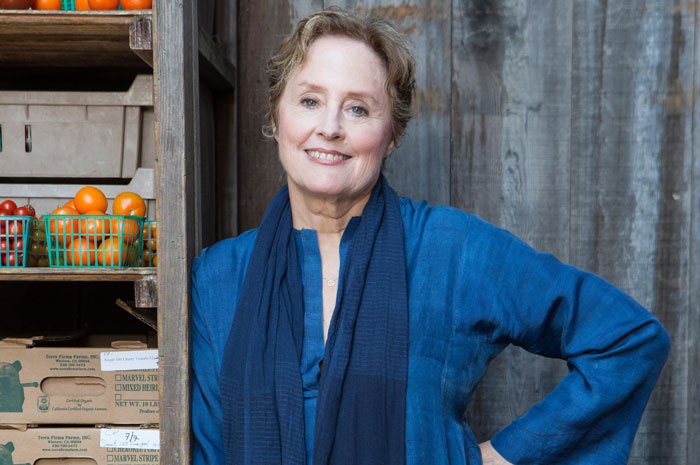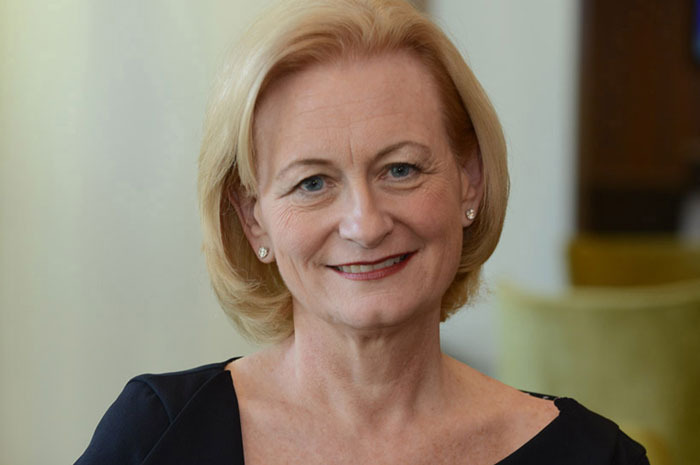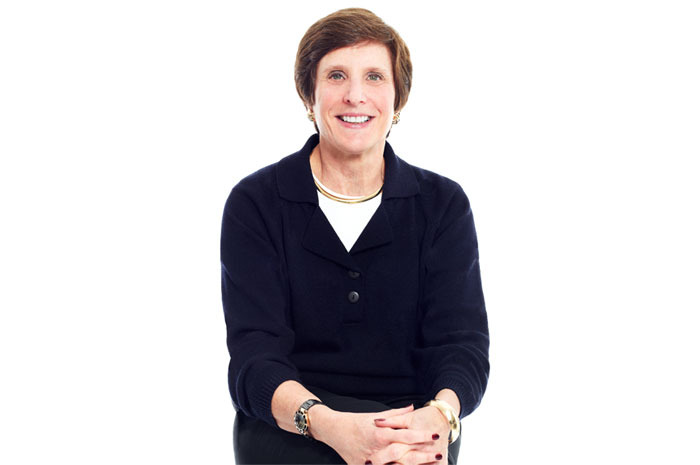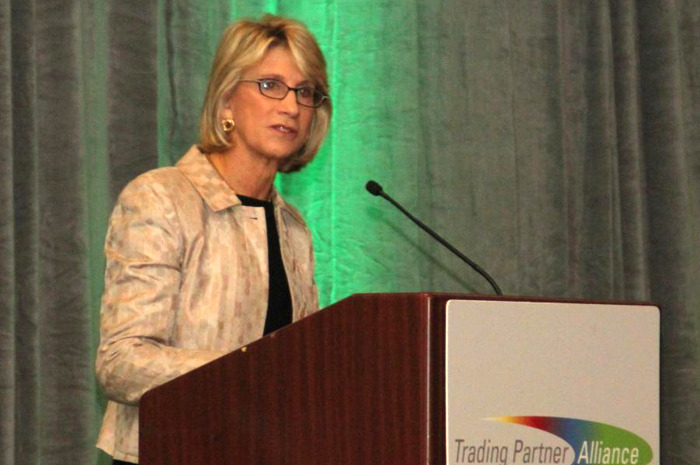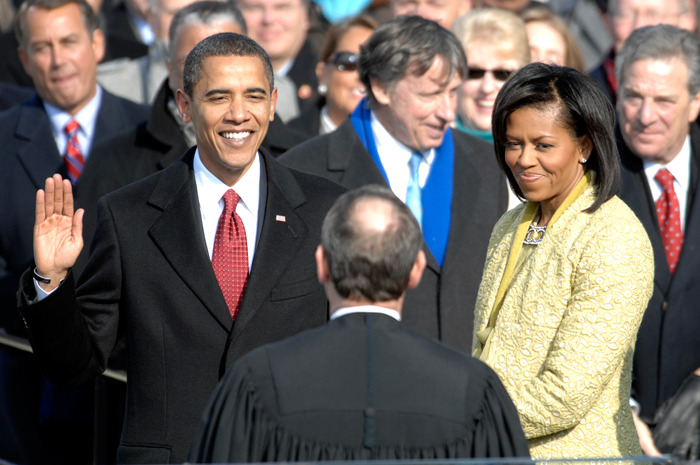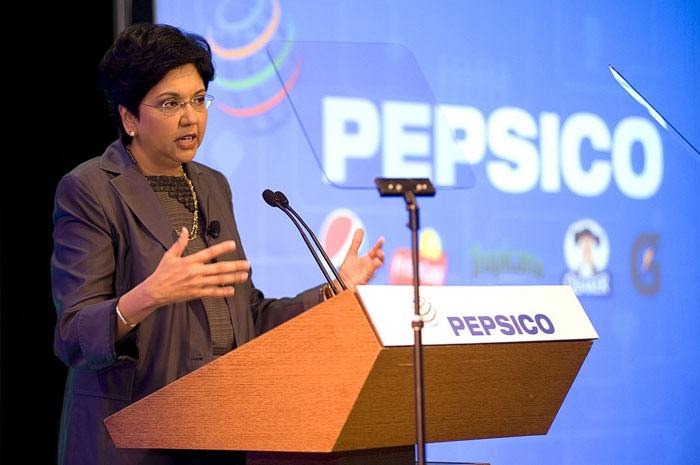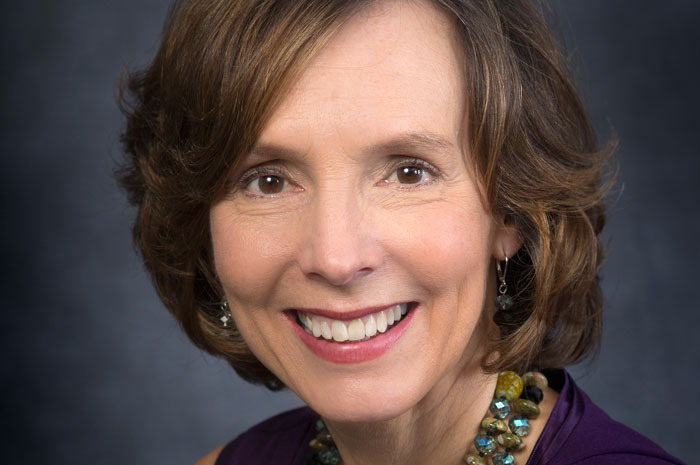The 11 Most Powerful Women In Food
Food is power, or at least an instrument of power — economic, political, moral. Those who control our food supply have significant influence over our lives, for better or worse. They decide, to a greater extent than we know, what and how we eat — and even if we eat, in extreme cases. Every year since 2011, we've set out to identify the most powerful people in the food world, and today we're recognizing the top 11 women.
#11 Ingrid Newkirk, President and Co-Founder, People for the Ethical Treatment of Animals
The vocal head of this increasingly high-profile organization, Newkirk led the company to another banner year in 2014. The World Trade organization upheld the EU's ban on seal fur imports with PETA's help, their wool industry exposé has been viewed nearly 4 million times, and their relentless campaigning against cruelty at SeaWorld has educated millions. The group's ever-widening influence on government agencies and courts demonstrates the power that it has harnessed through its sometimes controversial awareness campaigns.
#10 Julie Packard, Executive Director and Vice Chairman, Monterey Bay Aquarium
Packard, a marine biologist, has run this showplace aquarium since it was opened in 1984 with an endowment from her parents' nonprofit, the David and Lucile Packard Foundation (as in Hewlett-Packard, or HP). In addition to being a first-rate educational facility, the aquarium spearheads numerous movements aimed at ocean conservation. Its most visible immediate effect on the American food community, though, has been through its efforts as a pioneer in the sustainable seafood movement. Chefs and responsible consumers all over the country now consult its Seafood Watch list (in the form of wallet cards, a website, and an app) of sustainable choices in fish and shellfish, thus impacting the seafood marketplace from coast to coast. The Aquarium also hosts an annual Sustainable Foods Institute, addressing such issues as global food security, urban agriculture, and innovations in aquaculture.
#9 Alice Waters, Chef–Restaurateur and Founder and Director, the Edible Schoolyard Project
Nutritionally conscious before nutritional consciousness was cool, Waters introduced a whole generation of Americans to the very notion of organic and locally sourced food, even as she helped to popularize the cooking of her beloved Provence and other Mediterranean regions. Waters' most recent influence can be seen in the growing awareness of childhood nutrition created by her foundation, the Edible Schoolyard Project. Even Anthony Bourdain, who once said that Alice Waters annoyed "the living s–t out of [him]," called her a visionary, and described her Berkeley, California, restaurant Chez Panisse — which celebrated its 40th anniversary in 2011 and quickly bounced back from a devastating fire in 2013 — as "inarguably a cradle of the food revolution." Working to "teach, nurture, and empower young people," Waters uses her power to influence legislation, and was largely responsible for encouraging Michelle Obama to create a White House garden. Waters has long been a driving force in the restaurant world, and is increasingly one in the political sphere as well.
#8 Dawn Sweeney, President and CEO, National Restaurant Association
The country's main food-service lobbying organization, the National Restaurant Association represents more than 380,000 establishments around the country, from fine-dining restaurants and fast food chains to food suppliers and nonprofits. It has also set up food safety programs, provides scholarships in hospitality and culinary studies, assists its members with maintaining sound environmental practices, and runs the Kids LiveWell campaign, which encourages restaurants to serve healthy options for children — while meanwhile opposing Obamacare and efforts to raise the minimum wage.
#7 Irene Rosenfeld, CEO, Mondelēz International
It was Rosenfeld's decision to spin off Mondelēz from Kraft in 2012 to handle North American grocery operations, and before that, as CEO and then chairman of Kraft, she boosted growth by reinvigorating iconic brands, transformed their portfolio, and expanded its presence in emerging markets. With 2013 revenues of $35 billion, a new global initiative intended to broaden the reach of global nutrition efforts and sustainable agriculture, and the 2013 purchase of nine tech startups with the goal of driving mobile marketing and purchasing, Rosenfeld has brought Kraft fully into the twenty-first century.
#6 Patricia Woertz, Chairman, President, and CEO, Archer Daniels Midland
Providing agricultural storage and transportation services and operating more than 265 plants worldwide (where cereal grains and oilseeds are processed into products used in the food, beverage, nutraceutical, industrial, and animal feed industries), Archer Daniels Midland has been named three times by Fortune as the world's most admired food production company (among other things, they partner with Feeding America). At the head of the table is Patricia Woertz. Ranked eighth on Fortune's 2014 list of the 50 most powerful women in business, Woertz has brought ADM to record financial results — its 2012 revenues were $89 billion — while growing its sourcing, transportation, and processing networks through select acquisitions.
#5 Pamela Bailey, President and CEO, Grocery Manufacturers Association
You might not have heard of the Grocery Manufacturers Association, but they play more of a role in your life than you may think. The GMA is the world's largest trade association representing the food, beverage, and consumer products industry. Many of the world's top food companies are represented, like ConAgra, General Mills, Unilever, Cargill, and Mars, and together they take on big issues: their current battle is over GMO labeling and the right to call foods with GMOs "natural." As president and CEO, Bailey is the most visible member of the organization, working to deliver its messages to the American people in a clear, concise way that paints the companies the association represents in the best possible light. It's a tricky job, but somebody's gotta do it.
#4 Michelle Obama, First Lady
The First Lady remains an inspiring figure in the food world. In 2009, Michelle planted (partly with her own hands) a White House garden as a living, growing symbol of her "Let's Move" campaign: an effort to make school food healthier and to reduce childhood obesity to five percent by 2030. American Grown, her book about the garden (and about gardens, and about herself), with recipes included, was published in 2012.
#3 Rachael Ray, Television Personality
With her bubbly personality and contagious catchphrases (like "EVOO" and "Yum-O"), Ray appeals to ordinary people, not food snobs or self-styled connoisseurs. In 2006, she launched a successful self-titled daytime TV show, and is currently the editorial director of her own lifestyle magazine, Everyday with Rachael Ray. In her Cooking Channel show, Rachael Ray's Week in a Day, she continues to do what she does best: convince her viewers to actually go into the kitchen and cook.
#2 Indra Nooyi, Chairman and CEO, PepsiCo
With a portfolio that includes Frito-Lay, Quaker, Pepsi-Cola, Tropicana, Aquafina, and Gatorade, PepsiCo owns what is almost certainly the world's largest collection of food and beverage brands, including 22 different product lines that each generate more than $1 billion in annual sales. (Their salt and sugar bills must be enormous.) Since being named to her current position as head of PepsiCo in 2006, Nooyi was named Fortune's "most powerful woman" five years in a row (she placed second in 2011, 2012, and 2013, and third in 2014). While Nooyi has spearheaded new lines of nutrition-conscious products (like stevia-sweetened orange juice and reduced-fat potato chips), shareholders are reportedly unhappy with her efforts in the soft drink field, where Pepsi has lost market share to its longtime rival Coca-Cola. Still, Nooyi remains adamantly against splitting up the company's beverage and snack divisions.
#1 Susan Neely, President & CEO, American Beverage Association
Neely heads the American Beverage Association, a lobby that's spent tens of millions of dollars over the years (including nearly $19 million in 2009) to advance the interests of some of the country's largest non-alcoholic beverage companies and bottlers, including Coca-Cola, Pepsi-Co, and Nestlé. Recent initiatives include improving labeling and shrinking bottle sizes in an effort to fight obesity, and leading the charge against Mayor Bloomberg's proposed "soda ban" in New York City.

